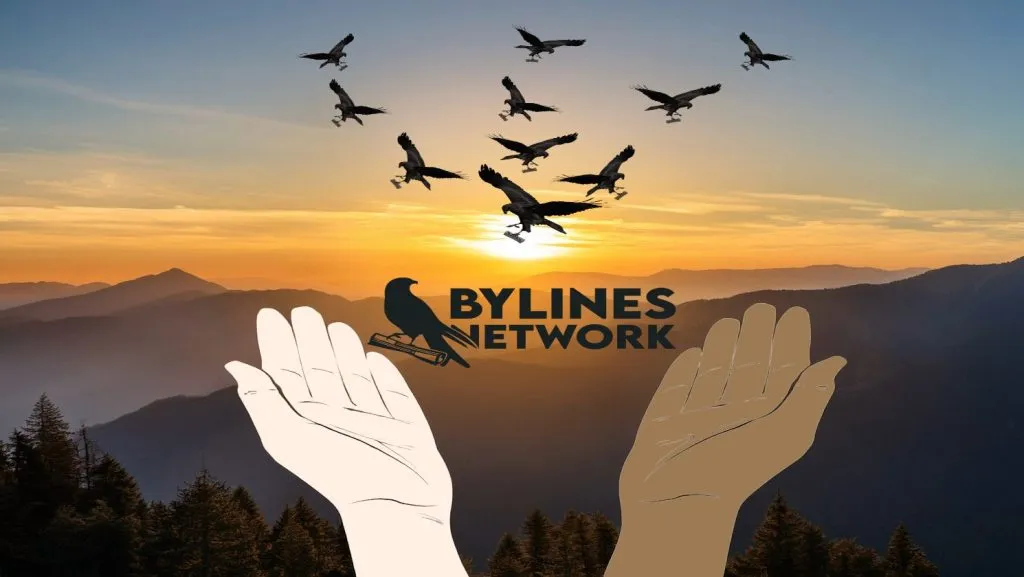For several years, it would have been fair to say that I lived my life on Twitter. As a political journalist for a number of years, the background hum of my day included scanning tweets for news stories, identifying those whose ideas captured my imagination and trying to campaign for the changes that were important to me. And I loved it. It was a place to make friends, to learn something new, to keep on top of the lightning-quick news cycle – and yes, to debate (in often comical shortform) those you disagreed with and might otherwise never meet.
But today, I’m firing off my last tweet. As a platform, Twitter (or X, if you must) is far from the place it used to be. It is now a cesspit of conspiracy theories, violence, illicit material, spam and trolls. In the same way that dogs are supposed to look like their owners, X’s ever accelerating descent into anarchy suggests that the same can be said for social media networks.
Yet it would be unfair to blame the downfall of a social network solely on one individual alone. In reality he has merely turbocharged the cycle of decline. The shift, from debate to near permanent slanging match, first came about more than ten years ago.
I used to pity those involved in the daily grind of Scottish politics, having to deal with the so-called “cybernats”, but then from 2015 onwards – exacerbated by the rise of Jeremy Corbyn and the Brexit referendum – Twitter trolling became the norm for the rest of the UK too. It was impossible to get through five minutes without someone being called a melt, a slug or a gammon – a reminder to those of us on the Left, if we ever needed it, that online hate doesn’t exclusively come from the right.
Musk will argue that X now represents “free speech”. Yet only this week he’s announced that he’s altering the algorithm to make the platform “less negative”. All this has really confirmed is that one individual – the owner of the platform with a political agenda – has the power to determine what you do and don’t see on your feed.
A few years ago, a colleague told me they thought someone they knew had been “radicalised on the internet”. I thought very little of it at the time, but even a cursory glance at Twitter (or any other social network, although less overtly) reveals this is increasingly common.
So why haven’t I left X sooner? There are so many reasons – none of them particularly good. A vague memory of what the platform used to be like in its early years, an admittedly vain attachment to my twenty thousand-plus “followers” who I proudly accrued since 2009 and the addictive dopamine rush that comes from watching a tweet rack up a decent number of likes or views.
Fundamentally though, the folk memory of what Twitter/X used to be like, or a forlorn hope that it might one day become again what it once was, is no longer enough to keep me there. And by posting on any social network, you decide – whoever you are – that you give it credibility by doing so.
I won’t judge anyone who continues to post on X, and there are many reasons for doing so – journalists wanting to get their stories out, freelancers looking for work, activists seeking to promote their cause. All laudable aims. But each person must weigh up the value of what they get out of X against whether they can personally stomach giving it their little shard of credibility.
Facebook (and their sister networks Instagram and Threads) now look set to tumble further into the fact free abyss, after they announced plans to get rid of all of their fact checkers. This is spectacularly short-sighted and dangerous at a time when those who believe there are “alternative facts” wish to sow distrust in our society and our democratic institutions. I’ll stay on Facebook a little longer – but I think anyone who has been paying attention knows what’s about to happen there too.
Now who am I to say this? I’m a backbench Labour MP. Not many people are going to miss the “news” that my X account generates. And I know for a fact that few of those who follow me live in Gateshead Central and Whickham – given that when I’m out every week knocking on doors, visiting community events or just talking to people in the supermarket, the conversations couldn’t be more different to the “dialogue” on X.
But more and more MPs and public bodies are finally moving away from exclusively using X to pump out news stories. That must be the direction of travel in the weeks and months ahead. Only by ridding X of its aura as the place to go for breaking news will its death grip on our democracy be relinquished. And therefore, all of us who contribute to it will need to find new places to speak out – because only by removing eyeballs and content can we ever expect to see any positive change.
So goodbye Twitter and good riddance to X. If anyone needs me I will be, for the time being, on Facebook, Instagram and Bluesky – or even better, talking to people face to face.

CLICK HERE TO DONATE TO OUR CROWDFUNDER
HELP US BECOME STRONGER SO THAT WE CAN CONTINUE TO DELIVER POWERFUL CITIZEN JOURNALISM!
This article was originally published by a northeastbylines.co.uk . Read the Original article here. .

